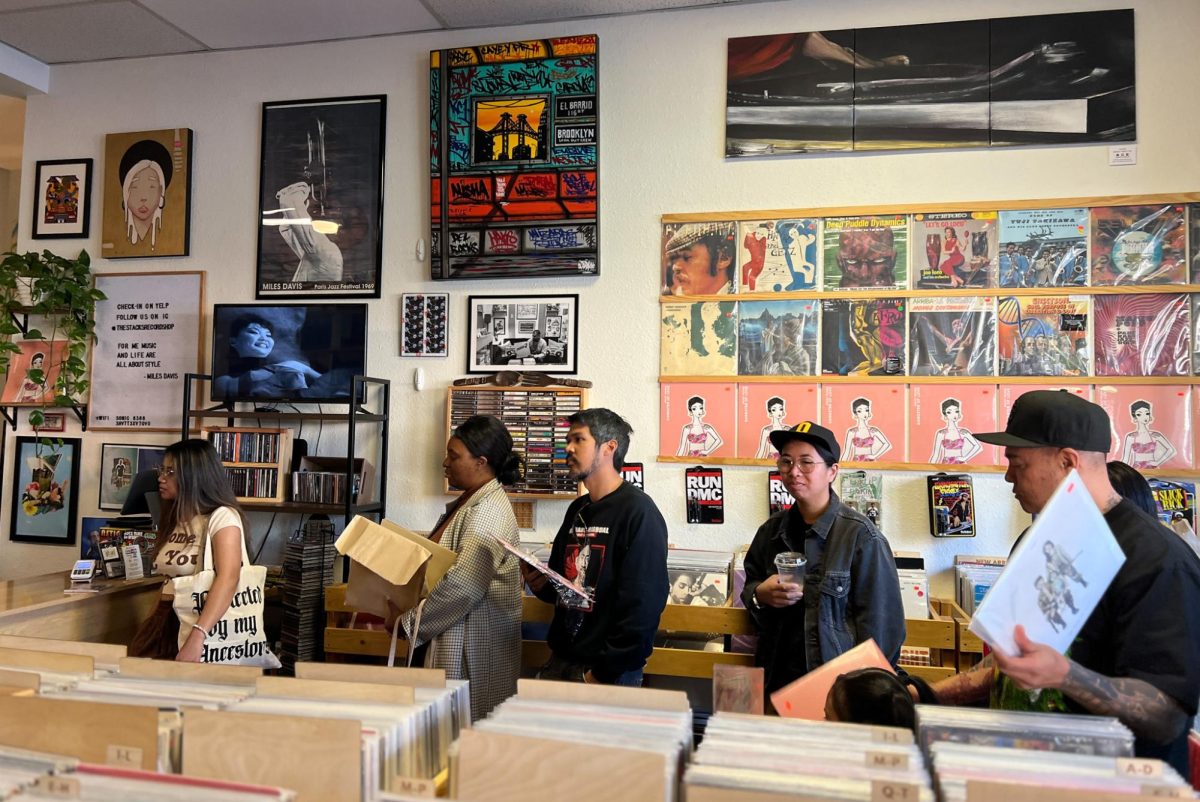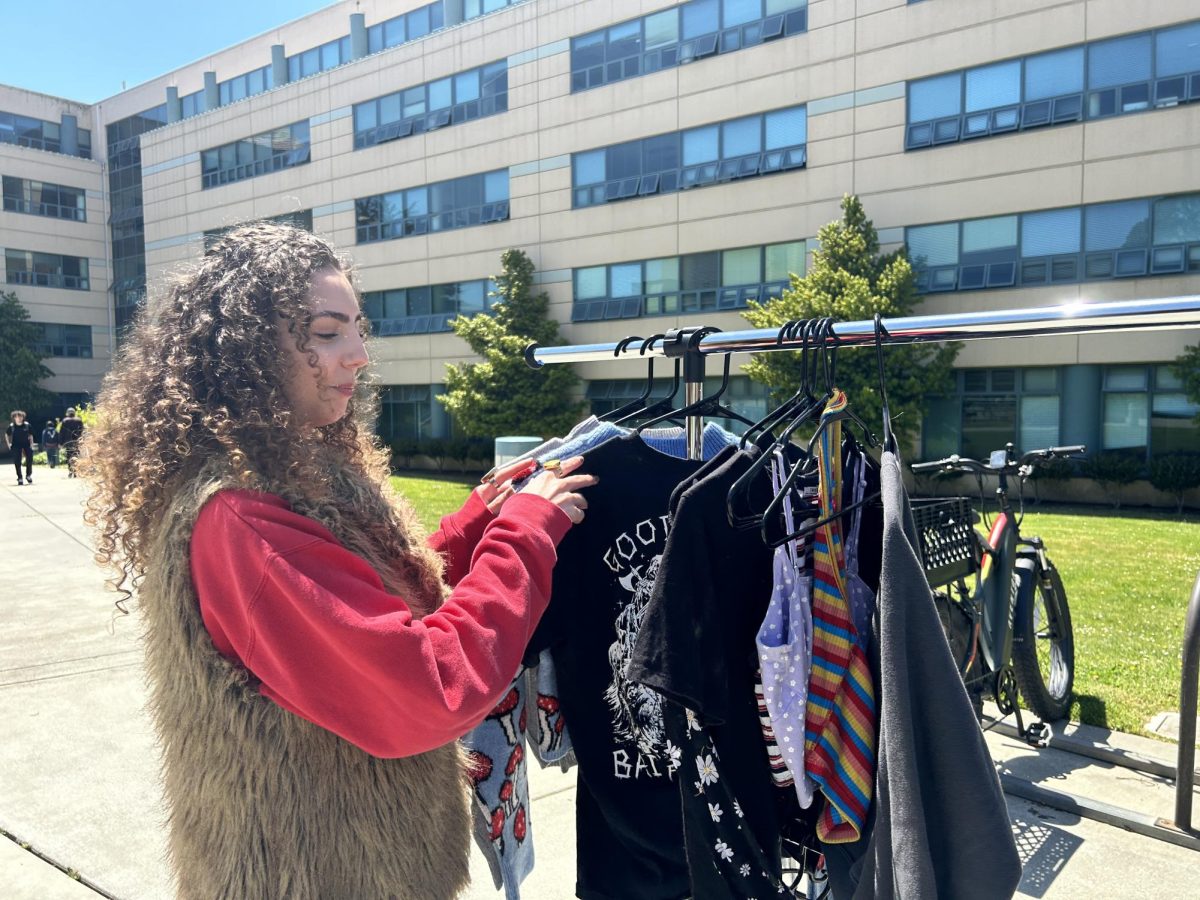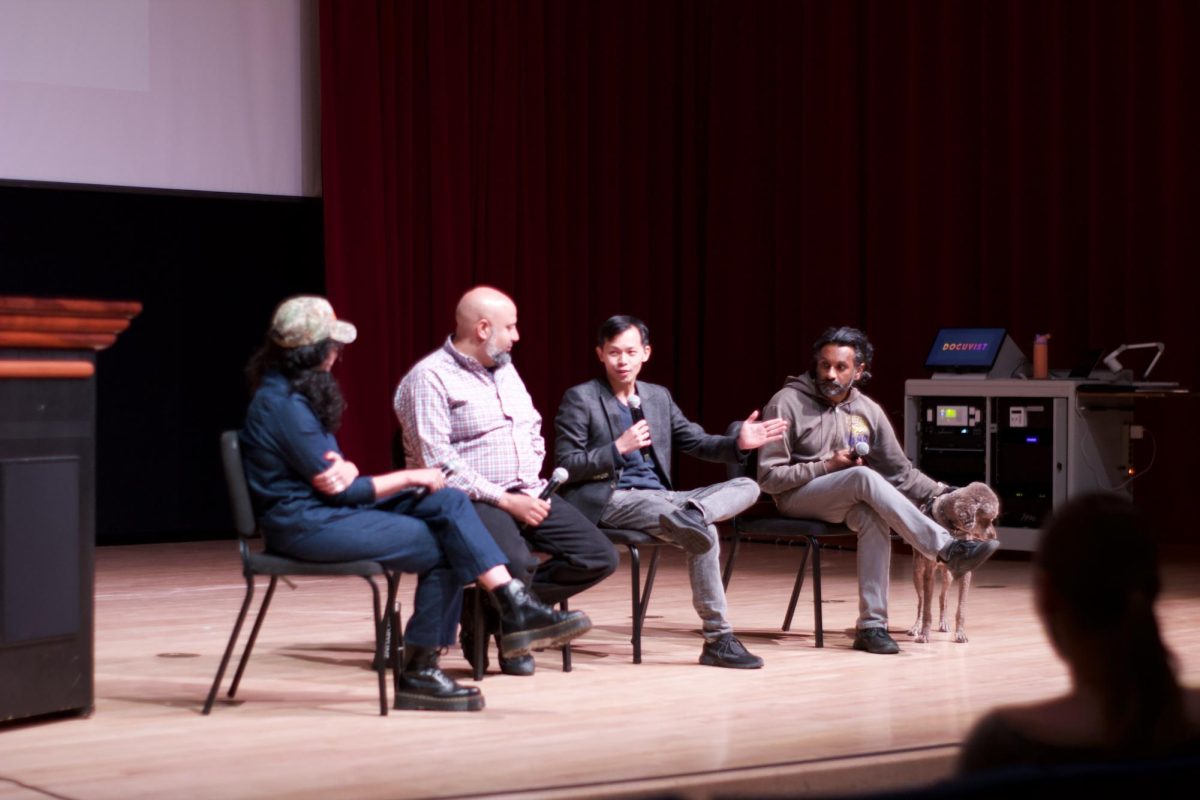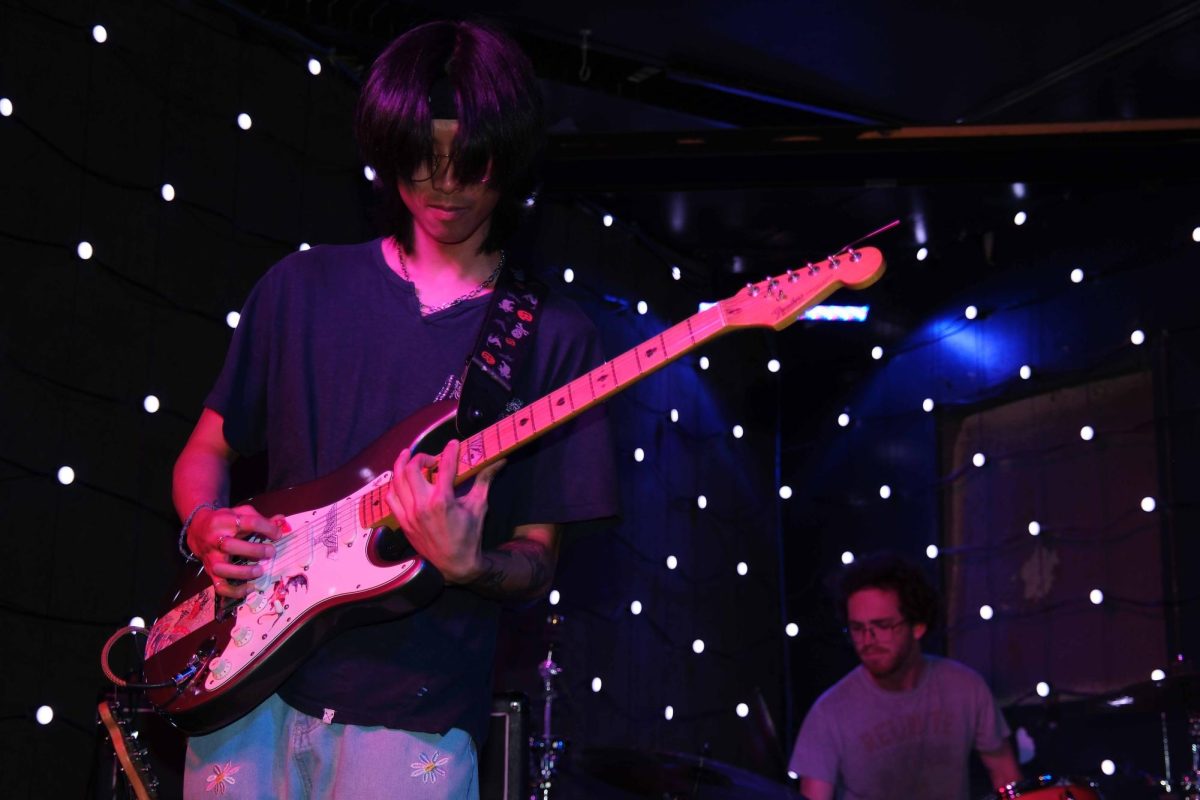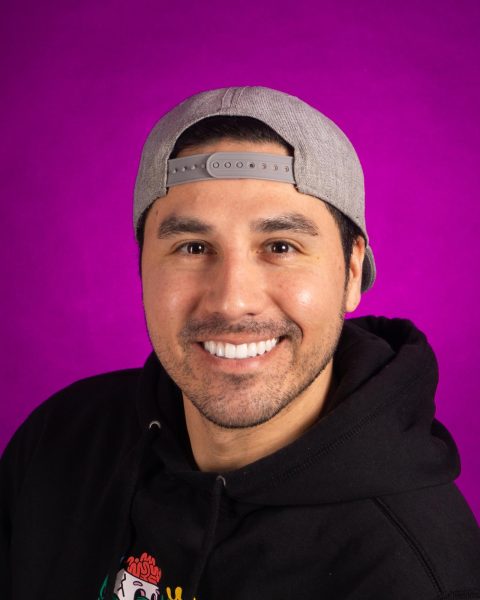On Aug. 11, 1973, one of the most influential music styles was born during a back-to-school party in the Bronx. It was called hip-hop.
Hip-hop immediately transformed music and has continued to evolve over the past five decades. From fashion to entertainment, hip-hop has been an influential force that inspires generations from the past and present.
At San Francisco State University, the 50th anniversary of hip-hop provided an opportunity to commemorate the genre’s milestones and the cultural revolution it initiated.
Former New York resident and current SFSU Associate Professor of Africana Studies, Mark Allen Davis, was exposed to hip-hop at a young age while attending college in New York.
“One of the first core memories I have of hip-hop was at a university dance hall where the DJ was mixing Good Times with Rappers Delight,” Davis said. “I spent almost an hour dancing to the same baseline.”
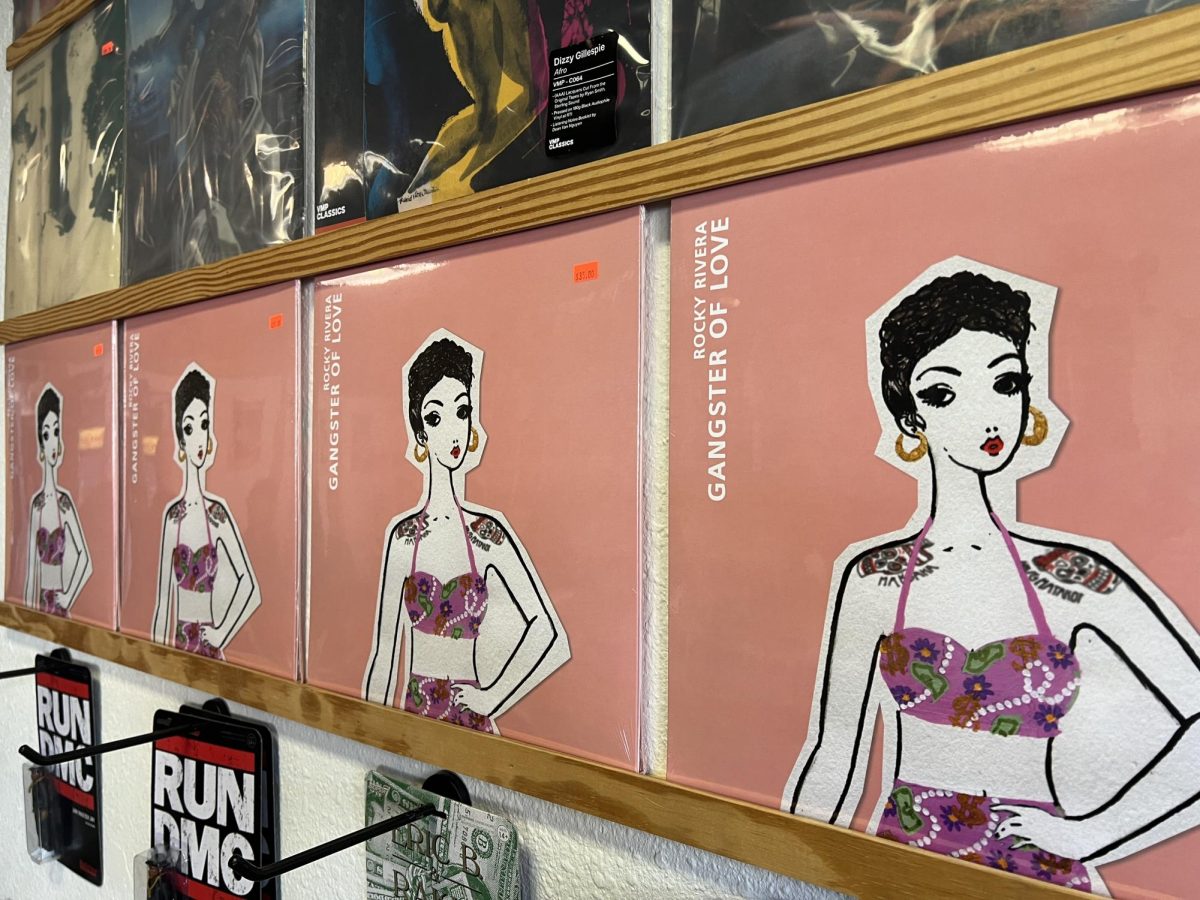
Throughout Davis’ years as a student at NYU’s Tisch School for the Arts in New York, the element that stood out to him was funk, a deep bass and the melodic lines that ultimately evolved into house music.
“It wasn’t until I started studying dance, that I started to notice a lot of people breakdancing on the streets and everyone had a boombox. This was the emergence of hip-hop breaking into the entertainment industry which made it widespread,” Davis said. “Urban culture was more popular in the entertainment industry from films to television to radio. It was everywhere.”
Hip-hop’s impact on Davis didn’t necessarily come from the streets of New York. He found his love for hip-hop through being an artist and being a performer on Broadway.
“My life has been very influenced [by hip-hop] in a conspicuous way –– it was also a conduit of my own culture as a Black man,” Davis said.
SFSU Africana Studies Professor, Dave ‘Davey D’ Cook was first introduced to hip-hop during its infancy in June of 1976 when riding the Circle Line ferry in New York City.
“I noticed people doing a weird dance which was associated with break dancing,” Cook said.
Hip-hop brings people together by creating a safe platform that promotes self-expression and a shared cultural identity.
“Hip-hop provided a sense of community, belonging and affirmation. I didn’t need to have a typical skill set that others would idolize,” Cook said. “I didn’t have to be someone who was a basketball player or a dancer. I was someone who was good at being a DJ and good with a mic.”
Cook specializes in hip-hop-based journalism and independent radio, earning wide recognition as an expert in the field.
“Looking back, no one knew that hip-hop would last as long as it has,” Cook said. “People who were a part of hip-hop’s beginnings had no idea how it would influence the rest of the world.”
Hip-hop continues to thrive as it remains a dynamic and influential cultural force that continues to have a deep impact on society today.

“Hip-hop is alive and well,” Cook said. “It has different manifestations that are reflective of individuals and communities. Hip-hop is not a one-size-fits-all. It’s up to us to look beyond the limitations that I think commercialism often interprets expression. The future of hip-hop will go where the people go. I think we make the mistake of predicting where hip-hop will go next.”
Hip-hop has touched the lives of millions of people with different multicultural backgrounds from all around the world.
Former SFSU journalism graduate Rocky Rivera is an emcee, journalist and successful hip-hop artist who was originally born in the Philippines.
“Through my music, I talk about how the hip-hop culture adopted me when I came to San Francisco and I lost my own culture. I know a lot of other immigrant kids feel the same way,” Rivera said. “Losing your language, culture and community, hip-hop was the one thing that helped bring other immigrants back together.”
Rivera immigrated with her family to the Bay Area when she was only four years old and still lives in the Bay Area with her own family.
“For a lot of people, we owe our livelihoods to hip-hop and for some, our lives,” Rivera said. “It’s more than just music.”
At a record-signing event at The Stacks Record Shop in Hayward, California, Rivera performed hits from her album, “Gangster of Love,” which celebrated its 10th anniversary.
“I’m hopeful that hip-hop continues to evolve and represents the communities it came from,” Rivera said. “Hip-hop wasn’t meant to be another tool for capitalism that forgets its roots. Hip-hop hasn’t only influenced me, it saved me.”
Daly City resident and registered nurse Hannah Yamaura was one of the many attendees at Rivera’s event.
“Listening to Rocky’s music reminded me of home and helped me through my homesickness,” Yamaura said. “My life ended up taking me to New York and I’ve always appreciated Bay music.”
Yamaura moved to New York in 2020 and worked in a Manhattan hospital during the peak of the pandemic.
“It’s hard to be Filipino in America, very hard especially as a child of immigrants,” Yamaura said. “For me, my comfort has always been food, but because good Filipino food is hard to find in New York –– my comfort evolved into the music I love.”
The history of hip-hop has been told in many different ways from movies to television to museum exhibitions. Including the new Universal Hip Hop Museum that will open in the Bronx in 2024.
The Recording Academy Grammy Museum in Los Angeles invited SFSU Associate Professor of History, Felicia Angeja Viator, as a co-curator for the museum’s latest exhibit, Hip-Hop America: The Mixtape Exhibit.
“I had an incredible experience working with the Grammy Museum,” Viator said. “It was a highlight in my career.”
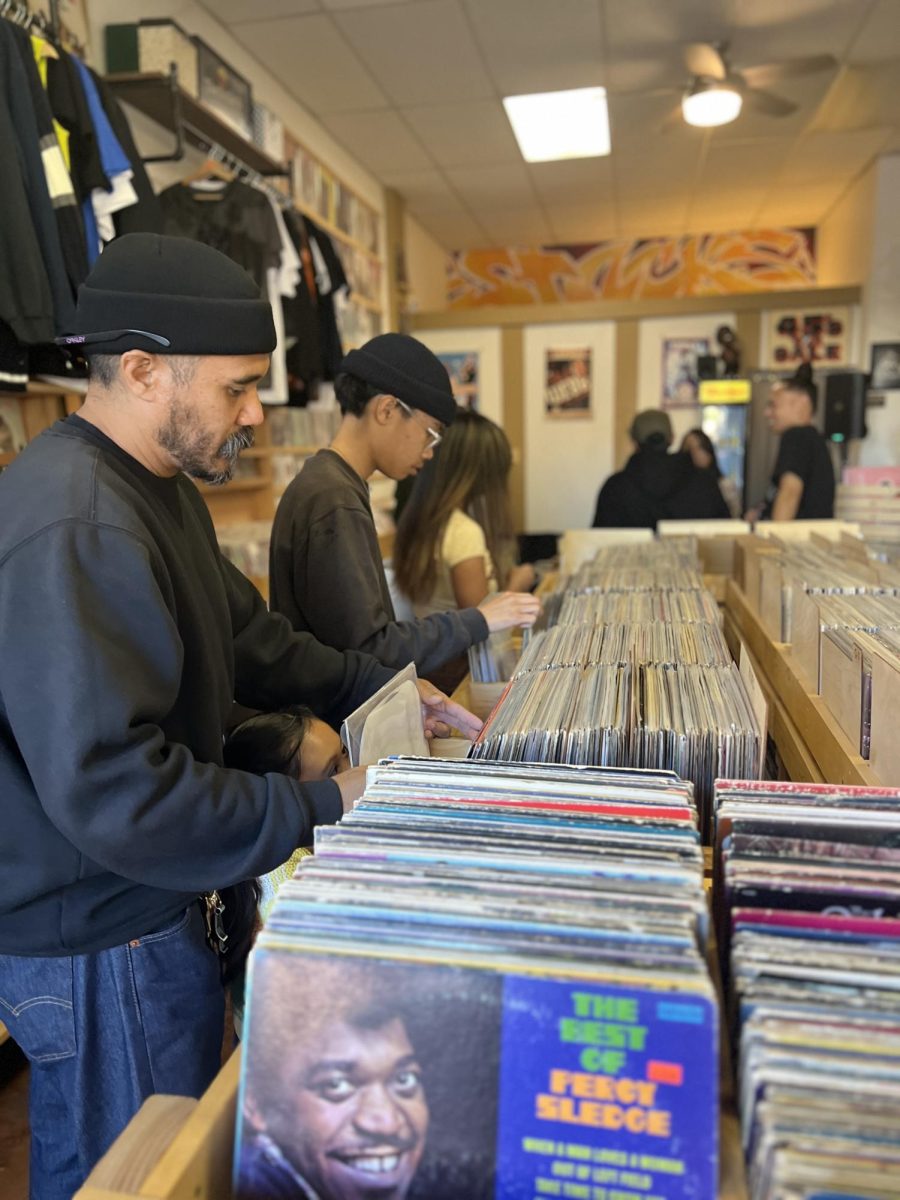
The Grammy Museum exhibit was originally going to focus on the LA rap scene but evolved into something much more expansive for the anniversary of hip-hop.
One of the primary reasons why Viator was invited by the Grammy Museum to co-curate the exhibit was because of the book she wrote on the origins of LA Rap, “To Live and Defy in LA.”
“Taking less than a year to create, the hip-hop exhibit is something unique and special that tells the history of hip-hop in ways we haven’t seen before,” Viator said.
Within the exhibit, people will see written stories and other artifacts. Visitors will have many opportunities to surround themselves with the power of hip-hop music by playing with samples and other musical elements.
The exhibit also gives visitors a chance to listen to interviews with artists who can tell in their own words what it means to write a rhyme, tell a story and captivate audiences.
Visitors can also create an original hip-hop track in a real recording booth, play with a professional DJ set and layer instrumentals as DJs do.
“The exhibit was curated for everyone across the hip-hop spectrum and is multi-sensory. We wanted to create something for people that was more than just absorbing information,” Viator said. “We wanted to fully engage them with the history and culture of hip-hop.”
As a historian, Viator is always looking at the past to help understand the present.
“As the only woman on the curatorial team, I felt a lot of weight and responsibility – we also understood how queer-identifying artists also had vital roles throughout hip hop’s history and wanted to make sure that was something we didn’t compartmentalize those artists or stories,” Viator said. “This was a way for me to ensure the history of hip-hop was represented accurately and to normalize the idea that so many people are involved in many different ways.”
Hip-hop over the past five decades has allowed the music genre to evolve and it’s headed toward a future that will continue to ensure its progression.
“Looking ahead at the next 10 years of hip-hop, you will see more women, non-binary and queer rappers that will dominate the music industry,” said Viator.
Viator felt a huge responsibility when co-curating this exhibit about a genre and culture that means so much to so many people from different generations.
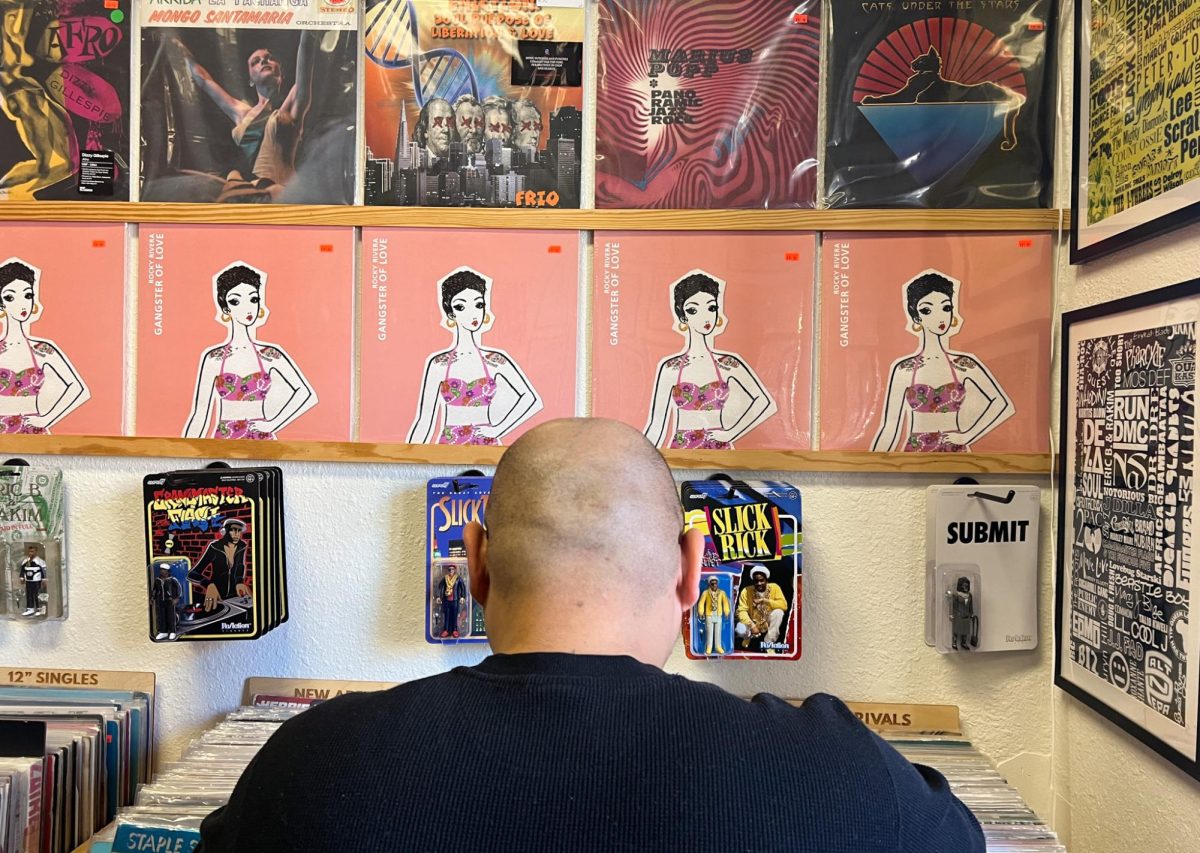
“You want to do it right. You want to make sure everyone from dedicated hip-hop heads to someone who’s just learning about hip-hop is satisfied,” Viator said.
The exhibit shows the evolution of the sounds of hip-hop music and how it has evolved over the last five decades. Viator believes hip-hop producers are going to continue taking new tech and making new sounds to continue to entertain – especially with the rise of AI.
“Though there are many worries about AI, it’s still a new technology and hip-hop artists have always known how to take new tech, adapt, innovate and create new art,” Viator said. “The past 50 years have shown us that the sounds and styles of hip-hop will continue to evolve again and again in ways that always surprise us. We’re going to continue to be surprised.”
Felicia co-curated the hip-hop exhibit in conjunction with Jasen Emmons, chief curator and vice president of curatorial affairs for The Grammy Museum.
“For us at the Grammy Museum, the 50th anniversary of hip-hop gave us the opportunity to reflect on the power and importance of hip-hop,” Emmons said. “We wanted to create an experience that was very compelling and thought-provoking –– this was the most exciting and challenging part of the project.”
The Grammy Museum hip-hop exhibit will run from Oct. 7, 2023 to Sept. 4, 2024, in Los Angeles.
“Everyone can agree the global power of hip-hop is fun,” Emmons said.“We tried to convey not only how global hip-hop has become but in a way that’s as vibrant and powerful as ever.”





